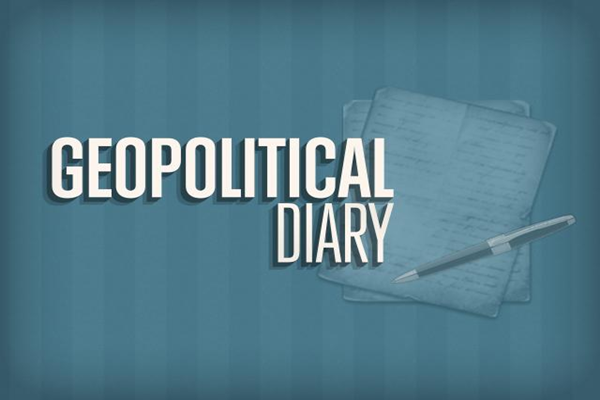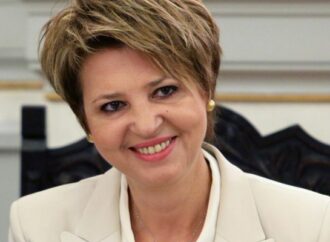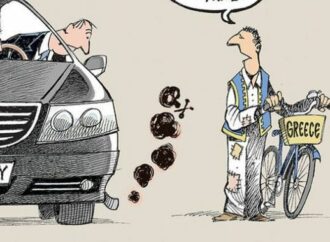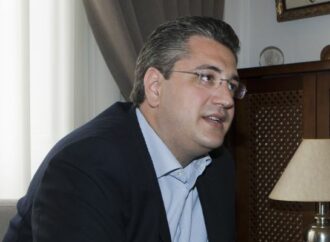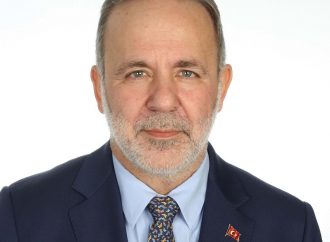Οι απώτεροι λόγοι της σκληρής διαπραγματευτικής θέσης της Τουρκίας με την ΕΕ είναι οι σχέσεις ΕΕ-Ρωσίας, και ο πόλεμος στη Συρία, λέγει το Stratfor. Η Τουρκία πιέζει την ΕΕ να πείσει τη Ρωσία να σταματήσει τον πόλεμο στη Συρία ώστε να γίνουν οι ζώνες ασφαλείας που θέλει η Τουρκία στα σύνορά της με τη Συρία.
Του Νίκου Αθηναίου
Σε σημερινή ανάλυση το Stratfor ισχυρίζεται ότι τα θέματα που διακυβεύονται στη διαπραγμάτευση ΕΕ και Τουρκίας είναι «ευρύτερα» και όχι μόνο, αυτό που φαίνεται, δηλαδή, ο έλεγχος των μαζικών ροών των μεταναστών.
Οι αναλυτές του Stratfor αποδίδουν τη «σκληρή διαπραγματευτική θέση» της Τουρκίας στις Βρυξέλλες, χθες, στην «πίεση» που ασκεί εδώ και καιρό στην ΕΕ για τη δημιουργία ζωνών ασφαλείας στα σύνορα της με τη Συρία.
Η δημιουργία και η ασφάλεια, όμως, τέτοιων ζωνών, προϋποθέτουν τη συμμετοχή της Ρωσίας της οποίας τα πολεμικά αεροσκάφη περιπολούν πάνω από τα τουρκοσυριακά σύνορα. Και επειδή, ΕΕ και ΗΠΑ δε μπορούν να κάνουν πόλεμο κατά της Ρωσίας για να την μεταπείσουν, η Τουρκία χρησιμοποιεί τη μεταναστευτική κρίση για να πιέσει την ΕΕ ώστε αυτή να τα βρει με τη Ρωσία στο θέμα των οικονομικών κυρώσεων εναντίον της, και έτσι η Μόσχα να συναινέσει στην κατασκευή των ζωνών.
Από την άλλη πλευρά, το Βερολίνο πρέπει να κρατήσει την ΕΕ ενωμένη και δε μπορεί να άρει τις κυρώσεις που λήγουν τον προσεχή Ιούλιο. Το Βερολίνο, συγκρατεί ακόμα, χώρες όπως η Ελλάδα, η Ιταλία και η Ουγγαρία που θέλουν άρση των κυρώσεων λόγω των εξαιρετικών εμπορικών και ενεργειακών σχέσεων που έχουν με τη Μόσχα. Την ίδια στιγμή, η Ουγγαρία δε θέλει να τα χαλάσει με τη γειτονική της Πολωνία που θέλει τη συνέχεια των κυρώσεων πού λήγουν τον προσεχή Ιούλιο.
Το Stratfor προβλέπει συνέχεια του πολέμου στη Συρία και συνέχεια των μαζικών ροών των μεταναστών προς την Τουρκία και Ευρώπη, γεγονός που εξηγεί «την απαίτηση της Γερμανίας» προς την Ελλάδα να φτιάξει περισσότερα κέντρα υποδοχής και προς την Τουρκία να «παίρνει πίσω κάποιους από τους οικονομικούς μετανάστες.
Και καθώς ο καιρός θα βελτιώνεται μέρα με τη μέρα στο Αιγαίο, η μαζική εισροή των μεταναστών θα αυξάνει, όπως θα αυξάνει και η πίεση στη Γερμανία». Σε κάθε περίπτωση, η ανάλυση θεωρεί δύσκολη την πρακτική εφαρμογή της συμφωνίας ΕΕ-Τουρκίας, όταν και αν ολοκληρωθεί.
Αμερικανικές στρατιωτικές βάσεις σε υπο-κουρδικό έλεγχο έδαφος στη Συρία
Σύμφωνα με ανταποκρίσεις του Κουρδικού ειδησεογραφικού πρακτορείου BasNews που αναμεταδίδει και το Reuters «με τη δικαιολογία καταπολέμησης» του Ισλαμικού Κράτους, οι ΗΠΑ κατασκευάζουν δύο στρατιωτικές βάσεις στο «Συριακό Κουρδιστάν», κοντά σε πλουτοπαραγωγικές πηγές, χωρίς την έγκριση της Δαμασκού, με απώτερο σκοπό την εξυπηρέτηση των μελλοντικών αγωγών ενέργειας που θα κατασκευαστούν από Σαουδική Αραβία και Κατάρ προς Τουρκία.
Το Πρακτορείο πιστεύει ότι η κατασκευή των δύο βάσεων αποτελεί πλήγμα κατά «της πολιτικής ενότητας και της εδαφικής ακεραιότητας της Συρίας», κατηγορεί την Ευρώπη ως «συνένοχο» των ενεργειών κατά του Συριακού λαού, και πιστεύει ότι «η Ευρώπη θα εξαρτάται όλο και περισσότερο από τα διδακτορικά καθεστώτα του Κόλπου και τους τουρκικούς εκβιασμούς».
Η είδηση για την κατασκευή των δύο αμερικανικών βάσεων ενόχλησε την τουρκική κυβέρνηση, κρίνοντας από χθεσινό δημοσίευμα της φιλοκυβερνητικής εφημερίδας Sabah σχετικό με την κατασκευή των δύο βάσεων. Η εφημερίδα μάλιστα θυμίζει πρόσφατη δήλωση του Τούρκου Προέδρου κ. Ερντογκάν που ζήτησε από τις ΗΠΑ να του πουν «ποιοι είναι οι σύμμαχοι» τους στην περιοχή, «η Τουρκία ή οι τρομοκράτες στη Συρία», εννοώντας τους Κούρδους.
The Real Reason for EU-Turkey Negotiations — March 8, 2016, 00.29 GMT
The official topic of the long-awaited summit between the European Union and Turkey on March 7 was the migration crisis in Europe. But while the heads of government of EU members and their Turkish counterparts are debating ways to reduce the influx of asylum seekers in Europe, the issues at stake are actually broader, ranging from the European Union’s relations with Russia to the evolution of the war in Syria. EU leaders agreed to work out the details of the measures discussed Monday with Turkey before the next European Council summit, which will take place March 17-18.
Turkey and the European Union are negotiating a deal according to which Ankara would take back migrants crossing from Turkey to the Greek islands. The European Union, in turn, would redistribute among member states most of the Syrian asylum seekers currently in Greece and some of those in Turkey. The focus on Syrian nationals is important because they represent roughly half of the migrants reaching Greek shores. If the European Union manages to restrict the flow of only those asylum seekers coming from Syria, its migration burden would drop by half.
However, there is little reason to believe that any agreements could be enforced. The European Union has pushed for months to introduce a plan to relocate asylum seekers across the Continent, but most member states have ignored it. Having failed to redistribute those asylum seekers currently in Greece and Italy, it is unlikely that member states will agree to accept even more migrants from Turkey. Some migrants may even refuse to be sent to countries they feel are undesirable. The most Germany and the European Union can hope for at this point is that a small number of EU members will accept more asylum seekers.
It is also unlikely that Turkey will accept the deal as is. During the summit on Monday, the Turkish delegation requested more money in addition to the 3 billion euros ($3.3 billion) the European Union promised to give Ankara last year — only a small fraction of which has actually been delivered. More important, Turkey requested the faster implementation of a visa-free regime for Turkish citizens visiting Europe and the acceleration of accession talks to the Continental bloc. Ankara is well aware that both topics are controversial for some EU members, which is revealing of the fact that Turkey’s goal extends way beyond visas or EU accession.
Turkey’s tough negotiating stance is linked to the war in Syria. Ankara has been pushing for years for the introduction of a no-fly zone south of the Syria-Turkey border and an associated safe zone in northern Syria. But Russia’s ongoing military intervention in Syria makes a no-fly zone by the United States and the European Union too dangerous without Moscow’s participation. Neither the United States nor Europe wants to risk a war with Russia, which actively supports the loyalist forces in Syria. During Monday’s summit, Turkey and the European Union discussed the possibility of a joint endeavor to establish humanitarian safe areas inside Syria. Turkish Prime Minister Ahmet Davutoglu also met NATO Secretary-General Jens Stoltenberg and requested “a more visible NATO presence” at the Turkey-Syria border, the next best thing to the safe zone.
Turkey is therefore using the migration crisis to pressure the European Union to reach an accommodation with Russia. Still, Europe will find it hard to mend its ties with Moscow. Europe has been applying economic sanctions against Russia since the beginning of the Ukraine crisis. Though some EU members have spoken against the sanctions, Germany has so far managed to keep the bloc united, and the different packages of sanctions have been extended every time they have expired. But this system is becoming harder to maintain. The most meaningful group of sanctions expires in late July, and unanimity is required to extend them. This means that it would require the veto of only a single country to prevent the punitive measures from being continued.
Some of the weakest links in the sanctions chain are the countries affected most by the migration crisis. Nations such as Italy, Greece and Hungary have expressed a desire for the quick lifting of sanctions. Those countries have major trade and energy ties with Russia, which means that easing sanctions could benefit them in multiple ways. Despite their rhetoric, however, Rome, Athens and Budapest have so far stuck to the official EU line that links sanctions to the fulfillment of the Minsk agreement. But these are the countries to watch when it comes to forecasting the continuation of the sanctions regime.
The German government has some influence when it comes to preventing a rebellion against sanctions. Greece’s creditors are currently debating whether to disburse the next tranche of the bailout program, and Athens is counting on German support to receive the money, which reduces the possibility of Greece voting against sanctions. The Italian government is about to reach a deal with the European Commission to tolerate a higher structural deficit, and German support will be essential. Hungary, in turn, may decide to protect its political ties with Poland (which wants to keep a tough stance on Russia) and support a new round of punitive measures against Russia. These factors suggest that another extension of sanctions is probable. But it also makes an agreement with Russia on the situation in Syria — and even on the situation in Ukraine — more difficult.
This complicates matters for Germany. Berlin needs to keep the European Union united and to reduce the arrival of migrants. If sanctions against Russia are lifted, many countries in Central and Eastern Europe would feel betrayed by the European Union and insecure about their future. Should sanctions be kept, Moscow would delay any moves to cooperate with Europe and Turkey on Syria, which in turn would make more people escape from the war and seek asylum in Europe. Berlin probably thinks that the second scenario is more likely, which explains Germany’s demand for Greece to build more reception centers for asylum seekers and for Turkey to take back some of the economic migrants. But with weather improving by the day in the Aegean Sea, the influx of migrants will only increase, and so too will pressure on Germany.
